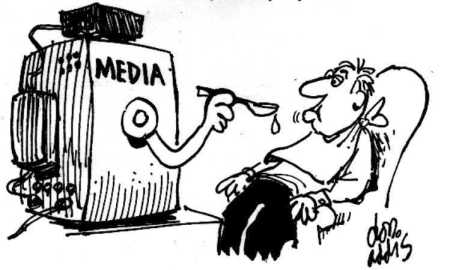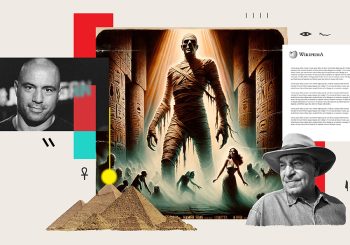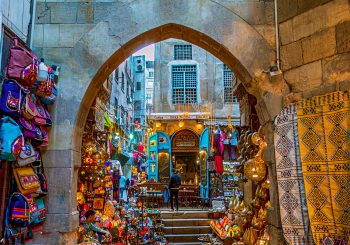Going to a school built on Western and liberal principles can really enrich a person. But what does this mean? Well, at the International School of Brussels it means that any student, teacher or staff member can aspire to be whatever they want to be. There is a definite vibe around school that allows people to express how they feel within limits defined by respect. In terms of learning, this is a blessing. I cannot imagine an English or Politics class where I am not able to criticize axioms of western societies.
That being said, many of my fellow students remain uneducated about anything that has not happened to or in the West. For example, no one fails to remember the Paris attacks and everyone can state exactly how many people died that day. Yet, why is it that people don’t know that 150 people were burned alive by the Turkish government, while at the same time CNN’s breaking news is that Donald Trump addressed his supporters?
Thinking about this question has led me to some interesting conclusions. One of them stands out far beyond all others: It is complicated and there is no simple answer. In fact, there is more than one answer, all of which have political, economical and societal aspects.
“Children Starving in Africa”
So let us go back to Turkey. Why is it in CNN’s interests to not mention what is going on in Turkey, while Russia Today features it as one of its main stories? The answer isn’t at all a conspiracy theory, even though it may look like one. Let’s look at what we know – or think we know. The Turks shot down a Russian warplane over Syrian (and for the sake of partial objectivity, possibly Turkish) airspace in November last year. This gave President Putin a chance to show a bit of muscle in order to reestablish his political strength.
Also, CNN has strong political ties with the Democratic Party, which currently holds power in the United States. When Turkey shot down the aircraft, it quickly turned to NATO, far before it approached Russia. This response suggests that Turkey’s goal was to hurt Russia politically, undermining their authority. This goes a long way in explaining why CNN and the BBC report the incident the way they have: they do not wish to tarnish Turkey’s image given that their respective governments need their citizens to have a positive image of Turkey.
The way media groups choose the stories to report and how they report them therefore has not only political but also clear societal explanations. Let’s consider Africa or headlines such as, “Children starving in Africa.” Reporting on Africa is frequently restricted to humanitarian or natural disasters, so much so that Westerners could easily draw the conclusion that “bad” things always happen in Africa. So who cares when a couple of thousand people are killed by Boko Haram in Nigeria in 2000, or when 992 civilians are murdered ten years later in 2010?
The West has developed a mindset that limits emotional and intellectual responses to a disinterested, “it’s Africa, that stuff always happens there.” And this, again, is not their fault, but the fault of the mainstream media for feeding them the kind of information they do.
When I discussed media coverage of the Paris attacks here in Brussels, I would ask people to explain the coverage of these events as compared to those in Beirut a few days before. “It’s the Middle East, that stuff always happens there,” they said. And yes, there have always been strategic assassinations in Lebanon but there really have not been many terrorist attacks. Another response was, “Well, more people died in the Paris attacks.”
I have two ways to prove that wrong. First, using the same logic against those who came up with it, on the 31st of October last year 224 people died in Egypt on a plane heading to Russian as a cause of terrorism in comparison with the 130 French deaths. So no, it is not a question of casualties because this got nowhere near as much coverage as Paris and its aftermath. Also, would this mean that at some point we would have to start labeling terrorist attacks based on casualties? “This one was not so bad because only 20 people died, this one is officially bad because 50 died, this one is horrible because a couple hundred people died.” Following this logic, then, at 130 deaths, the Paris incident did not fall under the worst ten terrorist attacks in the year of 2015. That is, of course, following the logic of these people. These top terrorist attacks include three in Nigeria totaling 2,225 deaths, another three in Iraq, and others in Egypt, Yemen, and Kenya.
Is There a Solution?
What is one to say to these people? Nothing. You show them. You show them how CNN was using the BREAKING NEWS banner to have them stare at their screens waiting for “something big” to happen, while actually not reporting on the breaking news we should be discussing. You show them that Russia Today was reporting on stories that CNN was completely ignoring because it was in the interest of Russian foreign policy and not in America’s. And you show them how it is not CNN alone who does this; with the case of the Russian plane shot down over Turkish Airspace incident, all media outlets did the same.
When people asked me, “What, then? What do you think we should do to know about everything that is going on in the world?” I answered, “You can’t. But can you think before you change your Facebook filter to the French flag when just as many Russians are killed in the same week. You have to ask yourself if you truly believe that a French life has more value than a Russian, and why you could believe this?”
You should assess this issue from all sides. On a daily basis, check RT, BBC, CNN, Al-Jazeera, and even small local news outlets. You will see the world from a broader perspective. Train your ear/mind to be critical. And I may be far from perfecting this technique, but it is more beneficial than simply listening to what I am told. As Winston Churchill said, “there is no such thing as public opinion, only published opinion.”







Comments (0)